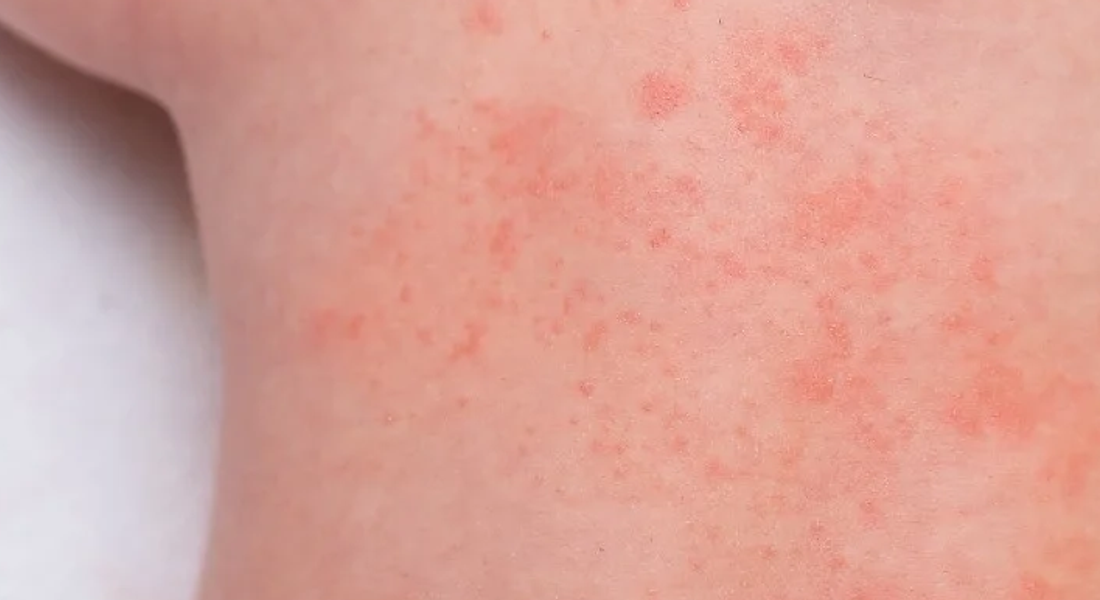Eczema vs. Allergy: Understanding the Key Differences
By:
Kevin Chong
On
31/10/2024Reading time:
5 min
Summary:
Eczema and allergies can both cause skin irritation, rashes, and discomfort, leading many people to confuse the two. While they may share similar symptoms, eczema and allergies are distinct conditions with different causes, treatments, and implications for long-term care.
In this blog, we’ll break down the differences between eczema and allergies, how they affect the skin, and when they might overlap.

What Is Eczema?
Eczema, also known as atopic dermatitis, is a chronic inflammatory skin condition that causes the skin to become dry, itchy, and inflamed. Eczema is part of a broader group of conditions known as atopic diseases, which can include asthma and allergic rhinitis (hay fever). However, eczema itself is not an allergy—it’s a skin condition often driven by a combination of genetic and environmental factors.
Common Symptoms of Eczema:
Dry and scaly patches on the skin
Intense itching that can worsen at night
Redness and inflammation
Thickened, cracked, or leathery skin in chronic cases
Commonly affected areas include the elbows, knees, hands, feet, and face
Causes of Eczema
Eczema is a complex condition influenced by multiple factors. Here are some of the most common causes:
Genetics: People with a family history of eczema or atopic conditions (like asthma) are more likely to develop eczema.
Skin Barrier Dysfunction: Eczema patients often have a compromised skin barrier, which allows moisture to escape and irritants to penetrate more easily.
Environmental Triggers: Factors such as harsh weather, stress, and dry air can exacerbate eczema symptoms.
Immune System Response: Eczema is associated with an overactive immune response, causing inflammation in response to harmless substances.
What Is an Allergy?
An allergy occurs when the immune system mistakenly identifies a typically harmless substance as a threat, triggering an immune response. This can lead to various symptoms, including skin reactions. Unlike eczema, allergies are not a skin condition but a broader immune response that can affect multiple areas of the body.
Common Symptoms of Skin Allergies:
Redness and itching
Hives or raised welts
Swelling in the affected area
A rash that appears soon after contact with the allergen
Allergic reactions affecting the skin can occur due to contact with allergens (known as contact dermatitis) or from allergens in the air, food, or environment.
Causes of Allergies
Allergic reactions are triggered by the immune system’s response to specific substances, which may include:
Pollen and dust mites
Certain foods like nuts, shellfish, or dairy
Pet dander or fur
Chemical ingredients in cosmetics, soaps, or detergents
Metal (like nickel) in jewelry or clothing
When an allergen contacts the skin, it triggers an immediate immune response in allergy-prone individuals, which releases histamines and causes inflammation, redness, and itching.
How Eczema and Allergies Are Different
While both eczema and allergies involve skin irritation, they are different in nature:
1. Underlying Cause
Eczema: Primarily caused by genetic factors, a compromised skin barrier, and an overactive immune response. Eczema isn’t triggered by allergens directly but can be aggravated by environmental factors.
Allergies: Directly caused by an immune system response to specific allergens, which can vary from person to person.
2. Types of Symptoms
Eczema: Chronic and recurring. Symptoms may include itchy, dry patches that persist and flare up periodically.
Allergies: Typically involve hives, swelling, or a red rash that occurs soon after exposure to an allergen and can resolve quickly once the allergen is removed.
3. Duration and Pattern
Eczema: Often a long-term condition with flare-ups and remissions. Symptoms can appear and worsen over time due to factors like weather changes, stress, or hormonal fluctuations.
Allergies: Reactions are usually temporary and occur immediately or shortly after exposure to an allergen. Removing the allergen generally helps alleviate symptoms.
How Eczema and Allergies Can Overlap
Although eczema and allergies are different, they can sometimes overlap:
Atopic Eczema and Allergies: People with atopic eczema may be more prone to developing allergies due to their genetic predisposition to an overactive immune response.
Contact Dermatitis: This type of eczema is caused by direct contact with an irritant or allergen, resulting in a localized rash that resembles an allergic reaction. Examples include rashes from nickel jewelry or certain cosmetics.
Food Allergies and Eczema: Some individuals with eczema may experience flare-ups after eating certain foods, though these foods don’t directly cause eczema. Food allergens can trigger an immune response that worsens eczema symptoms in sensitive individuals.
Treatment Approaches: Eczema vs. Allergies
Understanding the differences between eczema and allergies is essential for effective treatment:
Eczema Treatment
For eczema, treatments aim to moisturize the skin, reduce inflammation, and prevent flare-ups:
Moisturizers and Emollients: To strengthen the skin barrier and prevent dryness.
Topical Steroids: Used to reduce inflammation during flare-ups.
Lifestyle Changes: Minimizing exposure to known triggers (e.g., harsh soaps, hot showers).
Immune Modulators: In cases of severe eczema, treatments may include medications that modulate the immune system.
Allergy Treatment
Allergy treatments focus on identifying and avoiding allergens, as well as managing symptoms:
Antihistamines: To reduce allergic reactions.
Topical Corticosteroids: To relieve skin irritation caused by allergies.
Allergen Avoidance: Limiting contact with allergens (e.g., using fragrance-free products, hypoallergenic materials).
Immunotherapy: In cases of severe allergies, doctors may recommend allergy shots to desensitize the immune response over time.
Eczema and allergies can both cause skin discomfort, but they differ significantly in causes, symptoms, and management. Understanding these differences can help you identify and treat each condition more effectively. If you suspect you have eczema or an allergy, consulting with a dermatologist or allergist can provide a tailored approach to managing your skin’s health.
With the right treatments and preventive care, you can find relief and protect your skin, whether you’re dealing with chronic eczema, an occasional allergy, or both.
